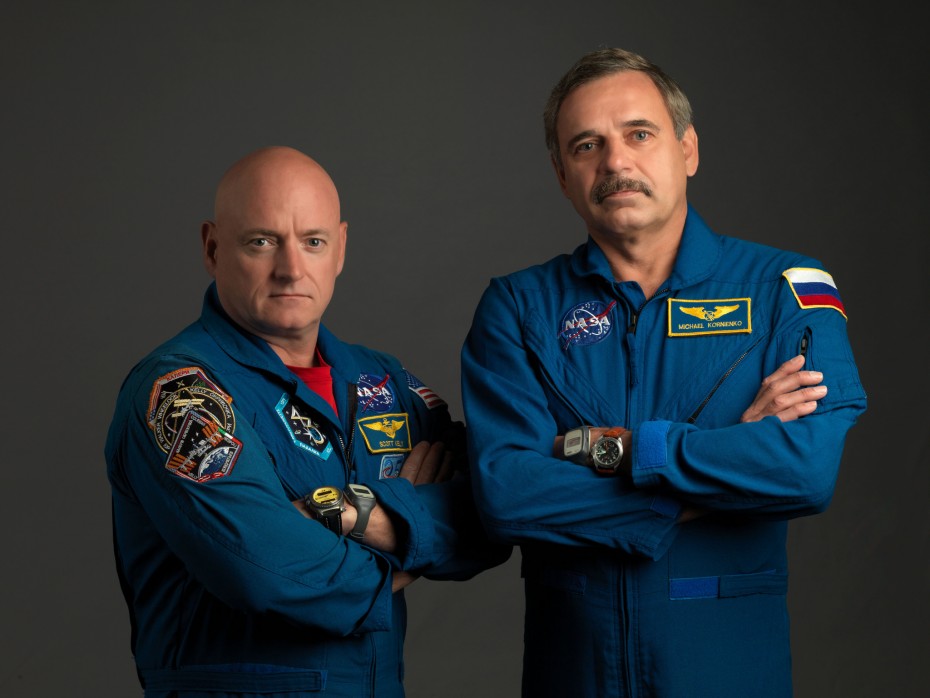This week, NASA and the Russian Federal Space Agency plan to send two astronauts to spend a year in the International Space Station. This will be one of the first times people have stayed in space for such a long period of time, and the first time anybody has spent so much time aboard the ISS. (Previously, a few Soviet and Russian cosmonauts spent more than a year aboard the Mir space station.)
While they’re up there, American Scott Kelly and Russian Mikhail Kornienko will take part in more than a dozen studies about the physical and mental effects of working in space longer-term. They’ll take periodic cognition tests, undergo sleep monitoring, and write in journals that psychologists will later read. Agencies will use all this data to predict what will happen if, in the future, humans build a moon base, or visit asteroids or other planets that require flights longer than a year.
What do psychologists already know about what may happen to Kelly, Kornienko, and the long-term astronauts of the future? Quite a bit, actually. Psychologists have been analyzing astronaut diaries and other first-person anecdotes for decades. They’ve also developed new ways to help astronauts cope with the increasingly international flavor of space missions, although on-board psychiatric help might still be a bit sparse.
Scott Kelly and Mikhail Kornienko will take periodic cognition tests, undergo sleep monitoring, and write in journals that scientists will later read.
NASA tests aspiring astronauts strictly—and somewhat mysteriously—before choosing them for missions. The chosen ones are generally easygoing and resilient and have good social skills, SPACE.com reports. If they’re married, they can’t have marital problems.
Still, depression and conflicts can arise among well-adjusted crews, psychologist Albert Harrison told the Monitor on Psychology in 2004. After all, they’re in a situation that’s basically new to humanity. In 1990, longtime space-psychology researcher Nick Kanas reviewed the known problems long-term astronauts can face:
Psychiatric issues include anxiety, depression, and psychosis, psychosomatic symptoms [Editor’s Note: Later in the paper, Kanas notes one Soviet astronaut had psychosomatic toothaches.], emotional problems related to the stage of the mission, and postflight personality changes. Interpersonal issues include interpersonal tension, decreased cohesiveness over time, need for privacy, and task vs emotional leadership.

The key to minimizing the impacts of these natural issues is training astronauts, and developing tools they can use mid-mission, should problems arise.
It used to be that NASA focused on courageous, individualistic personalities for their missions. Parts of that are still important, but in recent years, NASA has provided more inter-cultural sensitivity training, too, Wired reported in 2011. Americans preparing to go to the International Space Station can even opt to stay with a Russian family for a while.
Over the past several years, NASA has been funding a group of psychologists to develop a software program astronauts could use, while aboard spacecraft, to help them work through depression and conflicts with their fellow space-goers. Because astronauts are often reluctant to admit to anxiety or depression, out of fear they won’t be allowed to go to space again, the software is designed so nobody can track whether an astronaut uses it, Wired reported. Last February, however, SPACE.com reported the research still hasn’t made its way into a mission.
Luckily, not all the effects of traveling to space are negative. In 2009, Kanas published another review of long-duration space psychology, with recommendations for NASA. In it, he wrote:
Isolated and confined environments can also be growth enhancing and salutogenic. For example, people in polar environments or space may experience increased fortitude, perseverance, independence, self-reliance, ingenuity, comradeship…. Some astronauts and cosmonauts in space have reported transcendental experiences, religious insights, or a better sense of the unity of mankind as a result of viewing the Earth below and the cosmos beyond.
Staying in space for a year or more is a hard job, but an enviable one too.





